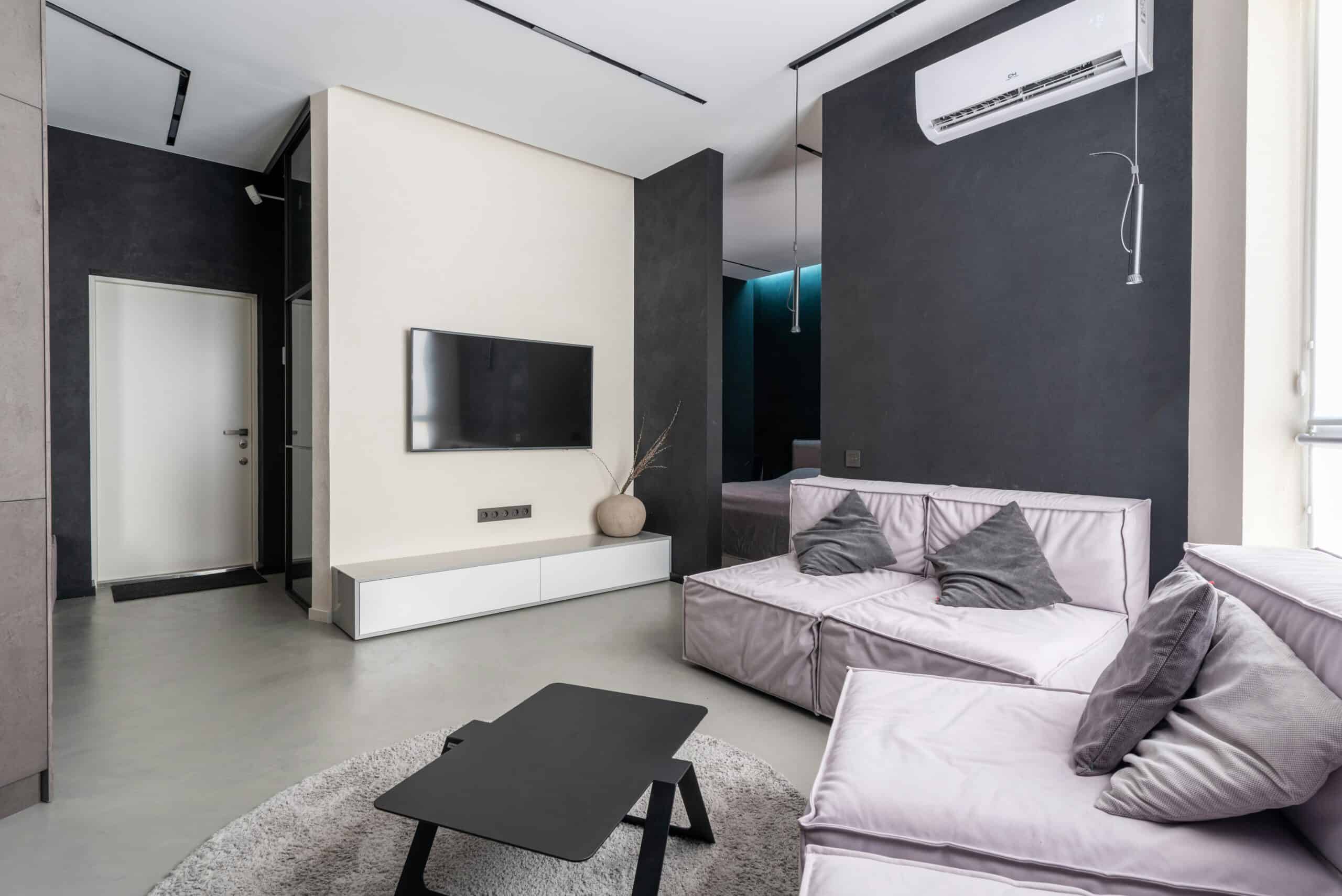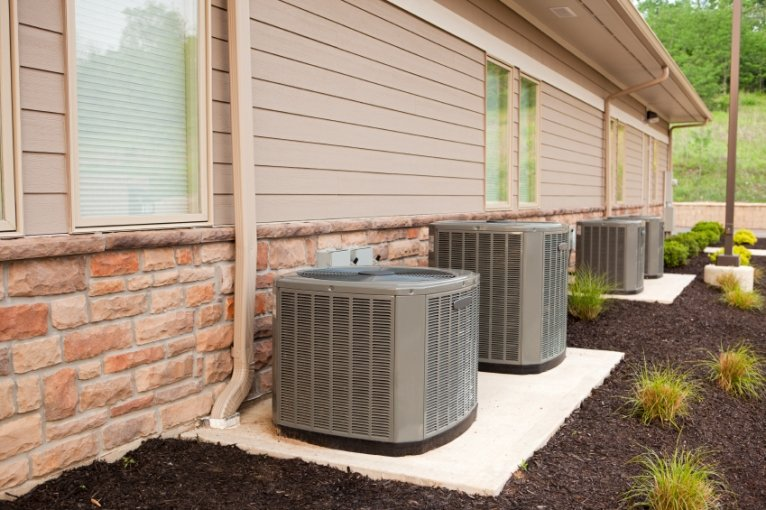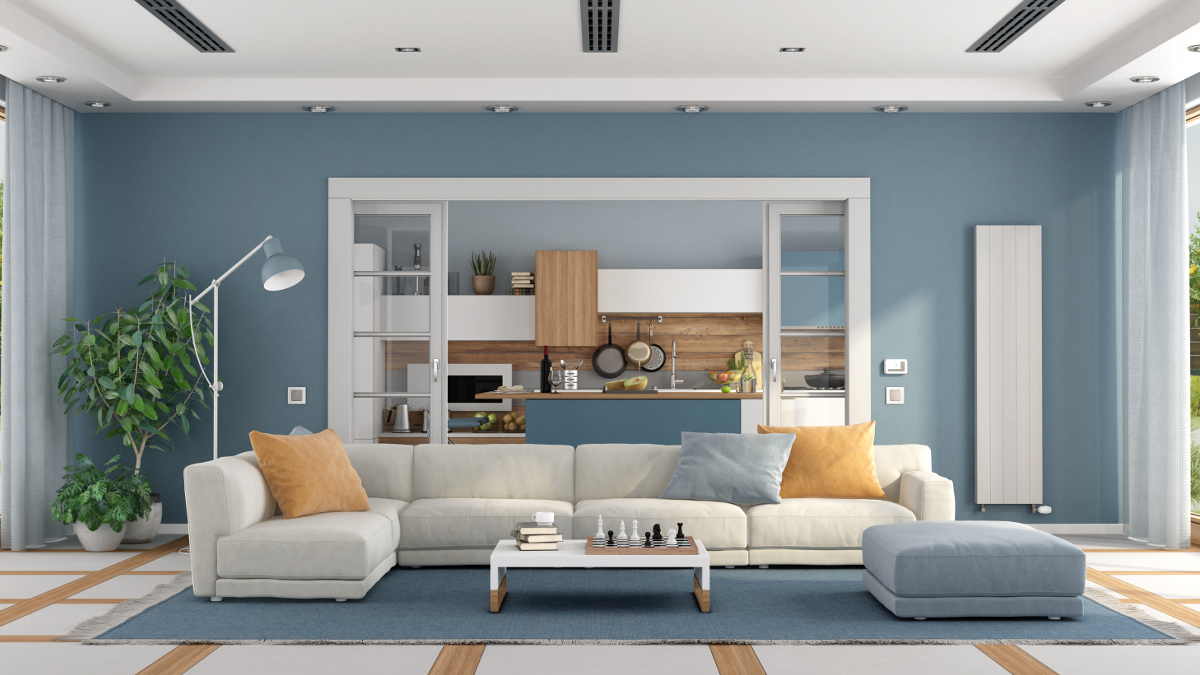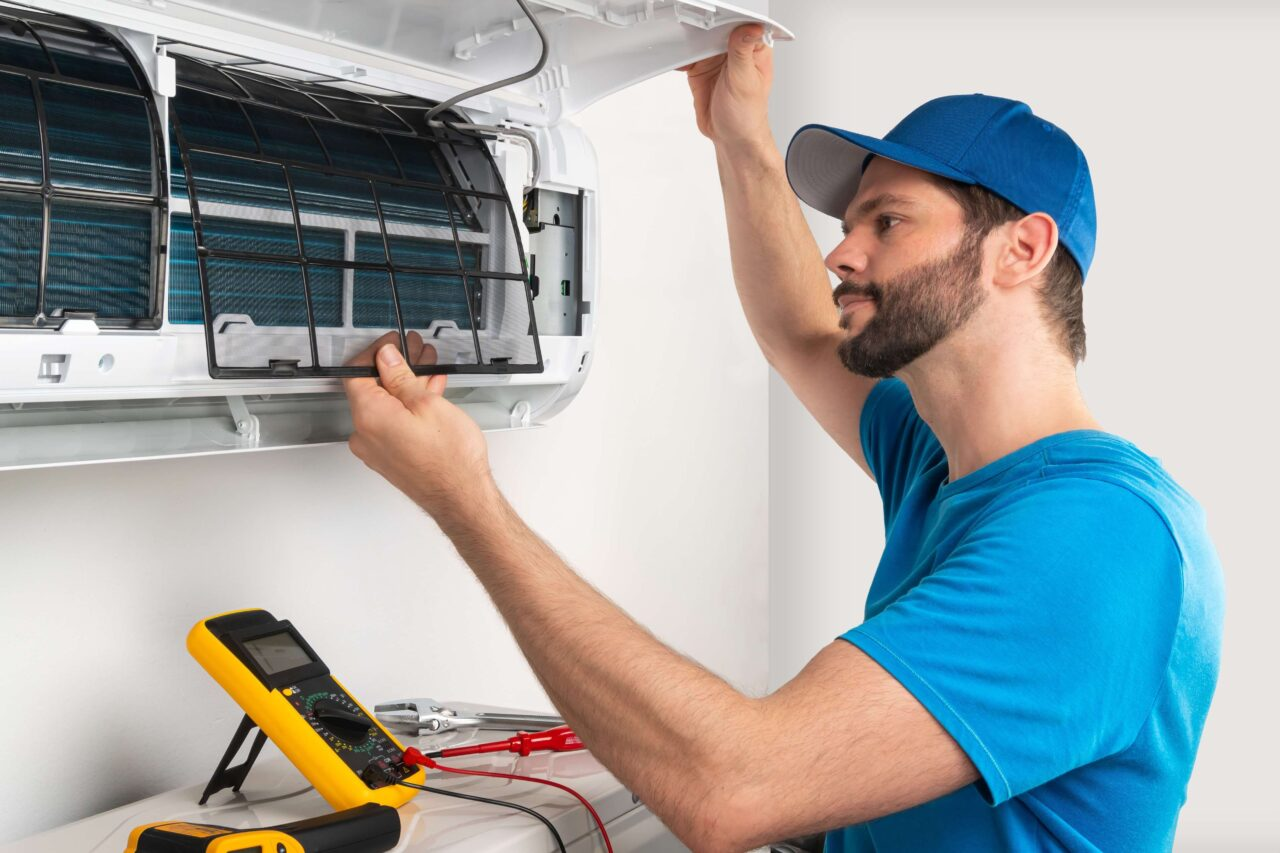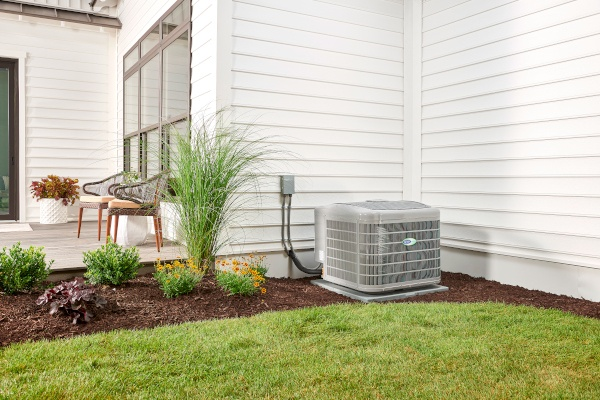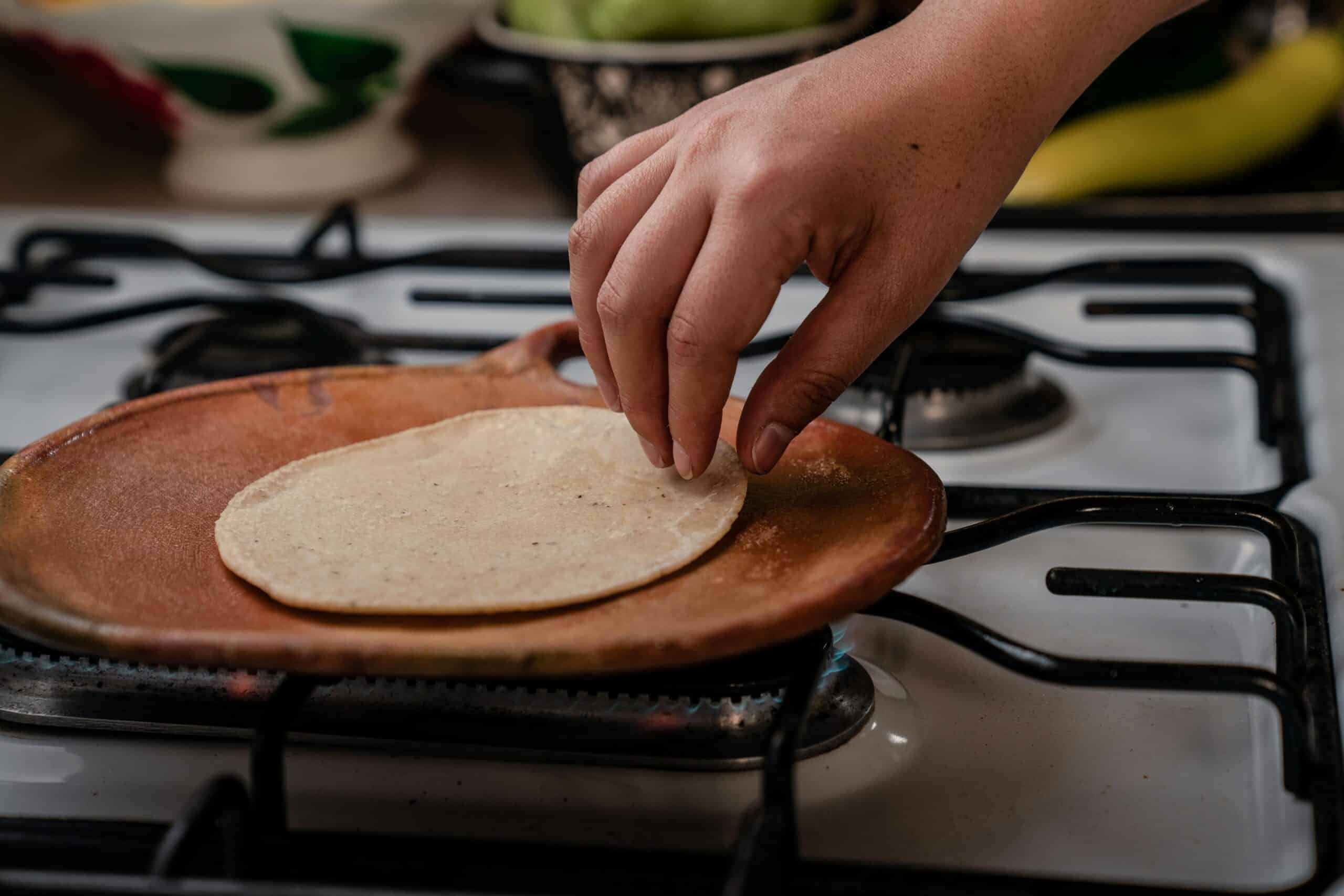The air conditioner is an essential component of the home. When creating a budget for household appliances, it falls under the must-have category. Air conditioning is crucial since it provides long-term and efficient cooling options for your home. As a result, a central air conditioner is useful for cooling numerous rooms at once. Before making a decision, the major question is, ‘How much power does a central air conditioner use?’
The amount of power used by an appliance determines its purchase. This is because you can estimate how much you will pay for power. As a result, decide whether or not to buy. However, a central air conditioning machine consumes a lot of power, but it instantly releases cool air into your area.
How Much Electricity Does a Central Air Conditioner Use?
Image Source: energy.gov
Kilowatt-hours (kWh) are the units used to measure electricity use and billing. The cost of one kilowatt hour varies by state.
One kilowatt hour (kWh) = 1000 watts (W)
On average, a central air conditioner uses 3000 to 4000 watts per hour. Therefore, this translates to 3 kWh to 4 kWh per hour. You are most likely to use your AC unit irregularly throughout the year. It will be most useful in warmer months and less in use in colder months. Thus, your electric bill is likely to be much higher in summer and lower in winter. A central AC can be used for a total of five months annually.
Factors that Affect the Amount of Electricity Central Air Conditioners Use
Image Source: gharpedia.com
Several factors influence the power usage of central air conditioners. They include:
1. Size
When selecting an air conditioner, it is essential to consider the size of the area you want to cool. A tiny unit is ideal for a small space since it distributes cold air uniformly across the room. If purchased for a bigger area, it will be overworked to keep the room cool. As a result, electricity consumption increases.
A bigger central AC unit is also advised for a large home. It will function effectively. However, if utilized in a small space, it will chill the area fast, leaving more moisture in the air. Humidity may increase mold growth in the long run. Furthermore, more energy will be consumed to power this air conditioner.
2. Age of Air Conditioner System
Older air conditioners were developed using older technology. While they still work efficiently, they also use less electricity. However, if they are not serviced regularly, they are more likely to use much more energy to maintain the required temperature. The same goes for newer models.
3. Type Of Air Conditioner Unit
A central air conditioning system requires more watts than a window AC unit or a compact split air conditioner. Wattage is also determined by the kind and model of the air conditioner. Most manufacturers advise on wattage so that you may make an educated decision.
It is also essential to examine the AC unit’s SEER (Seasonal Energy Efficiency Ratio). The greater the SEER, the more effectively the unit will operate.
4. Energy Star Rating
Home appliances that have an Energy Star have met strict energy-efficient guidelines. The appliances save you money on electric bills and also help to protect the environment. They use 8% less energy than the newer models. For this reason, when purchasing a central air conditioner, it is best to buy one that has an Energy Star rating. The energy consumption will be reasonable.
How to Reduce a Central Air Conditioner’s Energy Consumption
Image Source: memaso.com
We are all seeking a solution to save energy and lower the power usage of our equipment. Here are numerous strategies to reduce the amount of energy used by your central air conditioners.
1. Invest in The Right-sized air conditioner
The size of the AC unit you choose for your home or office is crucial. This is because you need an AC unit that effectively delivers cool air to all rooms. A smaller central AC in a larger house will not be efficient because it will be overworked trying to keep all the rooms cool. Thus, it is vital to engage the services of professionals who understand air conditioning. They will offer expert advice on the right side of the AC system.
2. Schedule The Cooling System For Servicing
The central air conditioning systems need to undergo regular servicing. These checks ensure that everything is working just fine. The service includes checking and cleaning the air ducts, motors, and filters. Additionally, the professionals may catch a problem earlier when doing the service. If anything goes wrong with your central AC unit without you noticing, the system may use more energy and increase your cooling costs.
3. Change Unit Filters Regularly
Central air conditioning has an outside unit that is prone to dust and debris drifting about. Dirt and debris will damage the AC unit’s operating mechanism. It will be sluggish and ineffectual, resulting in increased power use. Therefore, it is vital to change and clean the filters on a regular basis.
4. Keep Windows Closed, Especially During Warmer Months
Central AC is mainly useful during the warm seasons. During this period, you can keep your windows and doors closed to minimize the amount of hot air getting into the rooms. This is helpful because your central AC will not have to work harder to cool your home, which always results in higher energy consumption.
5. Set The System Correctly
Every cooling system has its setup. When setting up the central air conditioning system, ensure that it has been set up correctly and the right procedures are followed. This is important because it avoids overcooling.
6. Install Solar Panels
Installing a solar system in your house will help minimize your power consumption. The solar energy generated would be used to run the central air conditioner. As a consequence, you’ll save money on your power costs while also getting superb AC.
Frequently Asked Questions on Air Conditioners And Electricity Usage
Image Source: indoortemp.com
1. Can a central air conditioner be powered using solar panels? If so, how many?
Yes. Solar panels may be used to power central air conditioning systems. Because this AC device consumes an average of 3000 to 4000 watts, you would want 10 350W panels to keep powered. Even though air conditioners may not constantly consume a lot of power, you will need to install solar panels that can manage peak demand times.
2. Which One Uses More Electricity? A central air conditioner or a window air conditioner?
A central AC uses more electricity than a window AC. A central AC uses an average of 3000 to 4000 watts to cool several rooms. A window air conditioner, on the other hand, uses an average of 500 to 1400 watts to release cool air into a single space.
3. Why Does My Central Air Conditioner Use So Much Power?
The functioning mechanism of a central air conditioner consumes a significant amount of power. It has one that looks similar to a refrigerator. The air conditioning system consists of a series of tubes formed into coils known as the evaporator and condenser coils. It also has a compressor, which delivers refrigerant throughout the AC system.
The refrigerant evaporates, producing a gas that is fed back into the compressor, dissipating heat outside and providing cold air around your home or workplace. This entire procedure is difficult and energy-intensive. Your air conditioner consumes more power as its cooling output increases.
4. Is it cheaper to keep the air conditioner on or off when it is not in use?
The decision to keep the AC on or off will depend on the temperature inside and outside your house or office. If you maintain your house or office at a consistent temperature, it is cheaper to turn the AC off when it is not in use. Nevertheless, if the temperature keeps fluctuating throughout the day, it is better to keep the AC on to ensure that your home or office is comfortable.
5. Which Is Better, Central AC or Mini Splits?
Mini splits are not as effective as central air conditioning. This is because to its ability to cool many rooms concurrently. However, due to the ducts and filters, it requires routine maintenance. Mini-splits, on the other hand, are ductless and hence more expensive to install. Nonetheless, they require little or no upkeep.
Conclusion
Air conditioning systems are an essential feature of any house or workplace. They are useful throughout the summer months when we wish to cool off from the scorching heat. In general, they contribute to keeping homes and workplaces cool. The central air conditioner cools numerous rooms simultaneously. It is suitable for larger areas. Before installing one, you should understand its energy consumption so that you can estimate the cost of running this household equipment.
